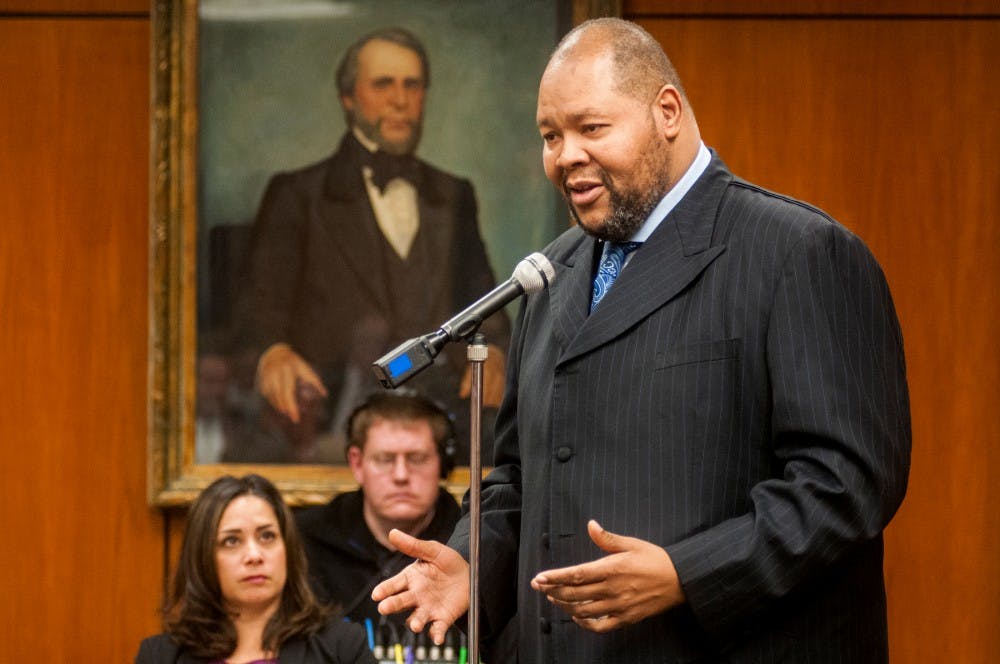MSU has played a major part in combating the issues resulting from the Flint water crisis through a new nutrition program and the efforts of the College of Human Medicine.
The MSU Board of Trustees discussed MSU’s efforts at the most recent meeting on Feb. 19.
Rick Sadler, an urban geographer and partner of Dr. Mona Hanna-Attisha, created a map describing how Flint residents do not have access to healthy foods. Mixed with the elevated lead levels in resident’s blood, it’s a dangerous combination.
"We've lost five grocery stores in the city and the immediate surrounding area in the last 3 years," Sadler said. "It is increasingly difficult to access healthy foods."
Sadler said lead exposure and healthy nutrition parallel in citizens health before and after the water switch.
MSU is also involved in launching a nutrition for Flint residents. Supplemental Nutrition Assistance Program Education, or SNAP-Ed, headed by Dr. Joan Ilardo, is meant to help reduce hunger in the city in addition to promoting healthy eating.
MSU President Lou Anna K. Simon said MSU has been in Flint for a long time, including with MSU Extension.
MSU Extension, the main outreach program for MSU throughout the state, launched a website to provide additional resources for Flint residents. In addition to the website, MSU Extension is also hosting cooking classes in Flint to help promote healthy living and learning.
Vice President of Student Affairs and Services Denise Maybank gave a presentation about students’ involvement with Flint. Maybank referenced MSU’s Give Gab page that displays the total hours, members and money involved in Flint.
Both Flint City Council president Kerry Nelson and a representative for Flint Mayor, Karen Weaver, attended the meeting. Nelson said MSU has taken care of the city during this critical time.
“Michigan State are trying their best to make it easier for us,” Nelson said. “They’ve been there. They call. They communicate. People see them. They know they’re there. When they pass out the water they tell people, ‘we’re with you.’”
Nelson said dynamics have changed in Flint and families now must stop at a water station just to make dinner for their family.
“It means a lot to the 11,000 people that I represent,” Nelson said.
Editor's note: A previous version of this article misstated a quote from Rick Sadler. It has been updated to reflect what was said.
Support student media!
Please consider donating to The State News and help fund the future of journalism.
Discussion
Share and discuss “Board of Trustees discusses involvement in Flint” on social media.







